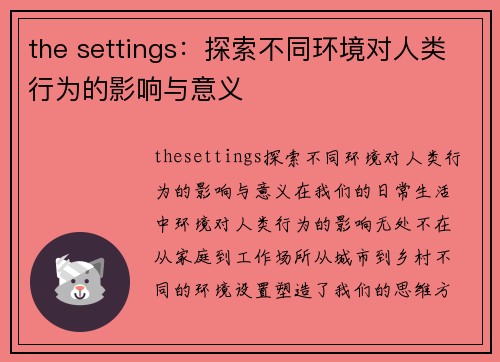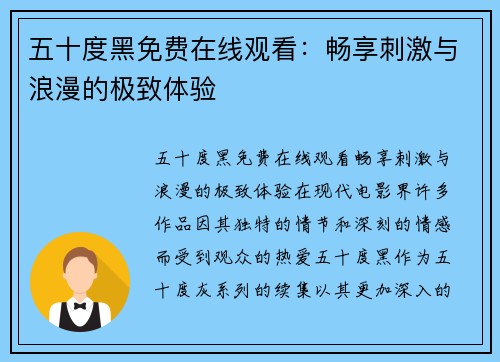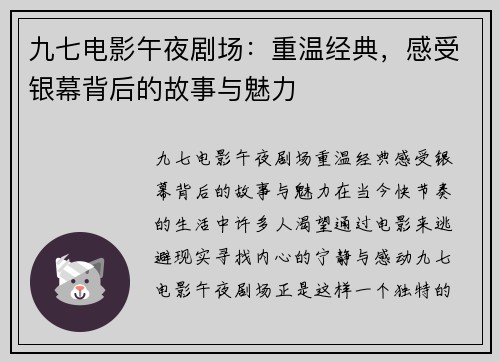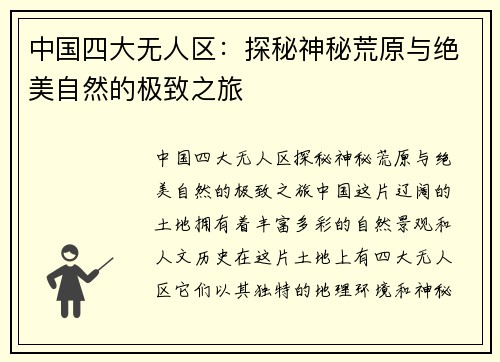porumb in english translation:Understanding the Meaning and Usage of "Porumb" in English Contexts
Porumb in English Translation: Understanding the Meaning and Usage of "Porumb" in English Contexts
The term "porumb" is a Romanian word that translates to "corn" in English. While this may seem straightforward, the nuances and cultural significance of corn in various contexts can lead to a deeper understanding of its implications. In this article, we will explore the meaning of "porumb," its usage in different contexts, and its significance in both Romanian and English-speaking cultures.
The Definition of Porumb
In its most basic form, "porumb" refers to the cereal grain known as corn. Corn is a staple food in many parts of the world and is used in a variety of culinary applications. In Romania, porumb is not only a dietary staple but also plays a significant role in agriculture and the economy. The grain is cultivated extensively and is a key ingredient in traditional Romanian dishes, such as mămăligă, a type of polenta made from cornmeal.
However, the term "porumb" can also have broader connotations. In Romanian culture, corn symbolizes abundance and fertility, often associated with harvest festivals and agricultural traditions. This cultural significance may not always translate directly into English contexts, where corn is often viewed primarily as a food source or agricultural product.
The Cultural Significance of Corn
Corn has a rich history and cultural significance in many societies, particularly in the Americas. Indigenous peoples have cultivated corn for thousands of years, and it holds a sacred place in their traditions and rituals. In contrast, the Romanian perspective on porumb is deeply intertwined with rural life and agricultural practices. Understanding these cultural differences is essential for grasping the full meaning of "porumb" in English contexts.
In Romania, corn is often associated with rural landscapes, traditional farming practices, and a way of life that has been passed down through generations. The harvest of porumb is celebrated with various customs and festivals, highlighting its importance in the local economy and community life. In English-speaking countries, while corn is recognized as a vital crop, it may not carry the same cultural weight or significance.
Culinary Uses of Porumb
In both Romanian and English-speaking cultures, corn is used in a variety of culinary applications. In Romania, porumb is commonly ground into meal for making mămăligă, which is often served as a side dish or a base for stews and meats. It can also be used to make polenta, a dish that has gained popularity in various parts of the world.
In English-speaking countries, corn is consumed in numerous forms, including corn on the cob, popcorn, cornmeal, and corn syrup. Each of these forms has its own culinary applications, from snacks to sweeteners. The versatility of corn makes it a staple ingredient in many cuisines, highlighting its importance as a food source.
The Economic Impact of Corn
The economic implications of porumb extend beyond its culinary uses. In Romania, corn is a significant agricultural product, contributing to the livelihoods of many farmers and the overall economy. The cultivation of porumb supports not only local communities but also plays a role in the country's agricultural exports.
领头羊导航在线跳转进行中In the United States, corn is one of the most important crops, with vast areas dedicated to its cultivation. It is used not only for human consumption but also as animal feed and in the production of biofuels. The economic impact of corn in English-speaking countries is substantial, influencing global markets and trade.
Environmental Considerations
The cultivation of corn, whether referred to as porumb or corn, raises important environmental considerations. Intensive farming practices can lead to soil degradation, water depletion, and loss of biodiversity. In both Romanian and English-speaking contexts, there is a growing awareness of the need for sustainable agricultural practices to mitigate these environmental impacts.
In Romania, traditional farming methods that prioritize crop rotation and organic practices are being revisited as a way to promote sustainability. In contrast, English-speaking countries are increasingly adopting practices such as precision agriculture and organic farming to address environmental concerns related to corn production.
The Future of Porumb in Global Contexts
As the world continues to grapple with issues such as food security, climate change, and sustainable agriculture, the role of porumb in both Romanian and English-speaking contexts will evolve. Innovations in agricultural technology, shifts in consumer preferences, and changing climate patterns will all influence how corn is cultivated and consumed.
In Romania, there may be a resurgence of interest in traditional farming practices that emphasize sustainability and local food systems. In English-speaking countries, the demand for organic and non-GMO corn products is likely to grow, reflecting a broader trend towards healthier and more sustainable food choices.
Conclusion
Understanding the meaning and usage of "porumb" in English contexts requires a multifaceted approach that considers cultural, culinary, economic, and environmental perspectives. While the word translates simply to "corn," its implications are far more complex. By exploring the various dimensions of porumb, we can gain a deeper appreciation for this vital crop and its significance in both Romanian and English-speaking cultures.
Frequently Asked Questions
What does "porumb" mean in English?
- "Porumb" translates to "corn" in English.
What are some traditional Romanian dishes that use porumb?
- Traditional dishes include mămăligă (cornmeal porridge) and various stews that incorporate corn.
How is corn used in English-speaking countries?
- Corn is used in many forms, including corn on the cob, popcorn, cornmeal, and corn syrup.
What is the economic significance of corn in Romania?
- Corn is a key agricultural product that supports local farmers and contributes to the national economy.
What are the environmental concerns related to corn cultivation?
- Intensive farming practices can lead to soil degradation, water depletion, and loss of biodiversity.
How is sustainable agriculture being promoted in relation to corn?
- Both Romania and English-speaking countries are exploring traditional and innovative farming practices to promote sustainability.
What is the future outlook for corn production globally?
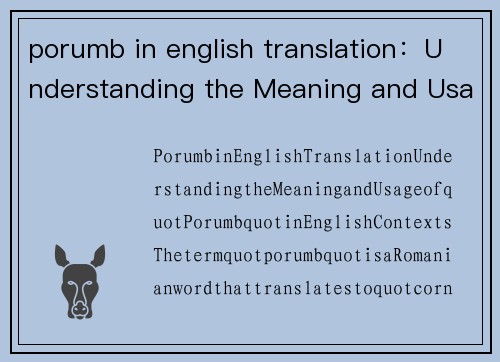
- The future of corn production will be influenced by technological innovations, consumer preferences, and environmental challenges.

